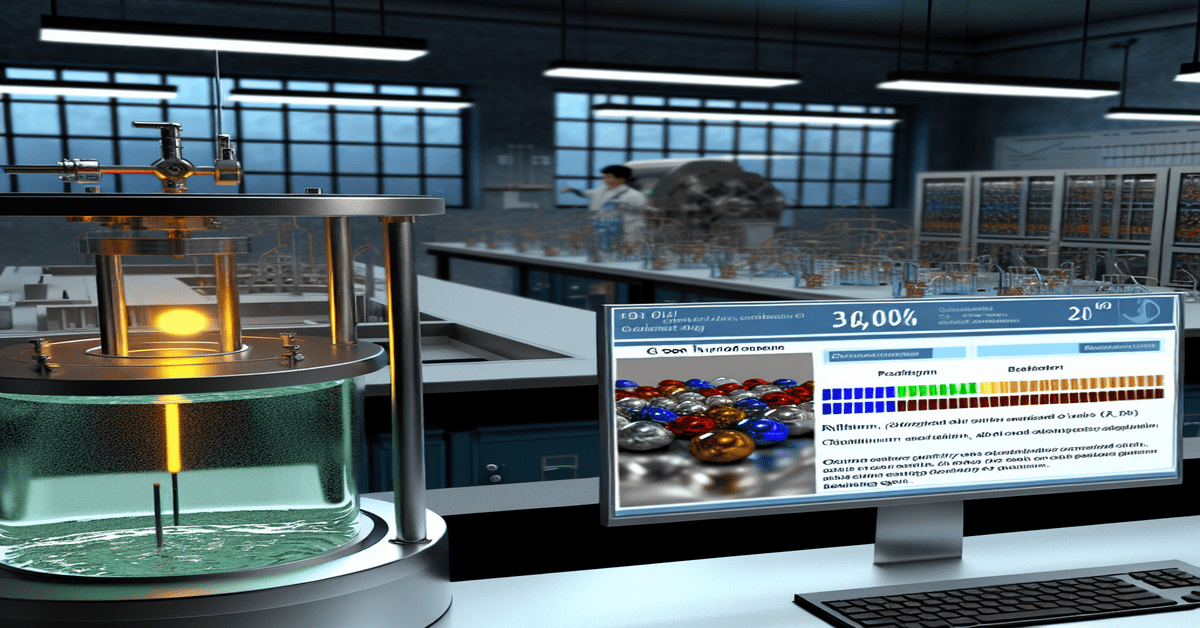Revolutionizing Green Hydrogen Production with AI: A Game-Changer for Sustainable Energy
The world is on the brink of a sustainable energy revolution, and researchers at the University of Toronto are leading the charge with a groundbreaking discovery. By harnessing the power of artificial intelligence (AI), they have developed a method to produce green hydrogen more efficiently and affordably than ever before. This breakthrough promises to accelerate the transition to clean energy and combat climate change.
The Traditional Method: Expensive and Inefficient
Hydrogen is a clean-burning fuel that has the potential to replace fossil fuels in various applications, from transportation to industrial processes. However, producing hydrogen sustainably, known as green hydrogen, has been a challenge due to the high cost and energy requirements of the traditional method.
The conventional approach involves passing electricity generated from renewable sources through metal electrodes in water, which releases hydrogen and oxygen gases. While this process is environmentally friendly, it requires a significant amount of electricity and relies on rare and expensive metals, making it economically unfeasible for widespread adoption.
AI to the Rescue: Optimizing the Search for the Perfect Alloy
Enter the researchers at the University of Toronto, who recognized the potential of AI to revolutionize green hydrogen production. They developed an AI program that simulated over 36,000 different metal oxide combinations, searching for the optimal alloy that could enhance the efficiency and durability of the electrodes.
The AI’s predictions were put to the test using advanced facilities such as the Canadian Light Source and the Advanced Photon Source. These state-of-the-art facilities allowed the researchers to confirm the AI’s findings and validate the performance of the top candidate alloy.
The Winning Combination: Ruthenium, Chromium, and Titanium
The AI’s search yielded a surprising result: a combination of ruthenium, chromium, and titanium proved to be the most promising alloy for green hydrogen production. When tested in the lab, this alloy demonstrated an impressive 20 times better stability and durability compared to the benchmark metal.
This breakthrough has significant implications for the future of sustainable energy. By reducing the cost and improving the efficiency of green hydrogen production, this AI-driven method could make hydrogen a more viable alternative to fossil fuels, accelerating the transition to a low-carbon economy.
The Power of AI in Sustainable Energy Development
The success of this research highlights the immense potential of AI in accelerating sustainable energy solutions. By leveraging the power of machine learning and simulation, researchers can expedite the discovery of new materials and optimize existing processes, reducing the time and resources required for experimentation.
As we face the urgent need to address climate change and reduce our reliance on fossil fuels, AI-driven innovations like this one offer hope for a cleaner, more sustainable future. The collaboration between AI and sustainable energy research is a powerful combination that could unlock new possibilities and drive transformative change across industries.
The Road Ahead: Scaling Up and Commercialization
While this discovery is a significant milestone, there is still work to be done to bring this technology to scale and make it commercially viable. The researchers at the University of Toronto are already working on the next steps, including optimizing the manufacturing process and exploring partnerships with industry leaders to accelerate the deployment of this innovative solution.
As the world watches with anticipation, the potential impact of this AI-driven method cannot be overstated. By making green hydrogen production more accessible and affordable, it could revolutionize the energy sector and contribute to the global fight against climate change.
A Call to Action: Embracing AI for a Sustainable Future
The development of AI-optimized green hydrogen production serves as a powerful reminder of the role that technology can play in addressing the most pressing challenges of our time. As individuals, businesses, and governments, we have a responsibility to embrace and invest in these innovative solutions, driving the transition to a sustainable future.
By supporting research and development in AI and clean energy, we can accelerate the pace of innovation and bring transformative technologies like this one to market faster. It is through collaboration, investment, and a shared commitment to sustainability that we can harness the full potential of AI to create a cleaner, greener world for generations to come.
So let us celebrate this remarkable achievement and use it as inspiration to continue pushing the boundaries of what is possible. Together, we can build a future powered by clean, affordable, and accessible energy, with AI as our ally in the fight against climate change.
#GreenHydrogen #SustainableEnergy #ArtificialIntelligence #ClimateAction
-> Original article and inspiration provided by Opahl Technologies
-> Connect with one of our AI Strategists today at Opahl Technologies


